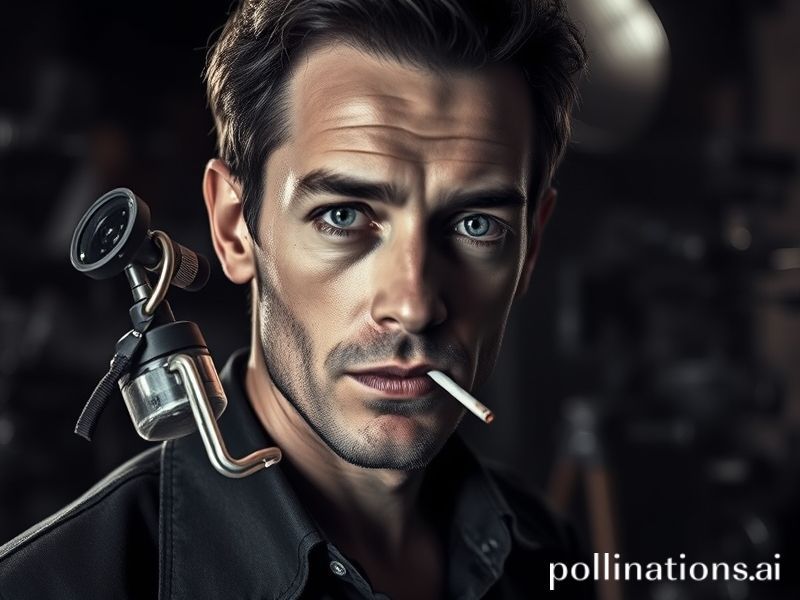Jude Law: The World’s Favorite Beautiful Disaster Chronicles Western Decline
**The Globalization of Jude Law: How One British Actor Became the World’s Favorite Beautiful Disaster**
In the grand theater of international cinema, where American superheroes battle Chinese box office records and Korean filmmakers collect Oscars like participation trophies, Jude Law stands as perhaps the most British export since colonialism—though considerably more attractive and with markedly less devastating global consequences.
The man who began his career as “that pretty British chap in period dramas” has evolved into something far more significant: a walking metaphor for Western civilization’s mid-life crisis. From his breakout role in “The Talented Mr. Ripley”—where he played a wealthy American’s fantasy of European sophistication—to his recent transformation into Hollywood’s go-to actor for “men who look like they’ve made terrible life choices,” Law has inadvertently chronicled the decline of Western masculine ideals with the precision of a Swiss chronometer.
Consider the international implications: while Chinese audiences flock to see their national heroes defeat foreign invaders, and Indian cinema celebrates virtuous sons respecting their mothers, Western audiences apparently prefer their male icons to look like they’ve just emerged from a three-day bender in a Savile Row suit. It’s as if the entire Anglo-sphere collectively decided that nothing captures our cultural moment quite like a man who appears simultaneously distinguished and dissolute.
The global reach of Law’s career trajectory tells us something profound about our interconnected world’s peculiar tastes. Japanese audiences adore him for embodying that particular brand of European elegance that makes their meticulously groomed male idols look like enthusiastic Labrador retrievers. Meanwhile, in Brazil, he’s viewed as the epitome of that British restraint that seems exotic when your local culture encourages men to express emotions with the subtlety of carnival drums.
His recent transformation into a character actor—complete with receding hairlines and the physique of someone who’s discovered that 40-something metabolism is nature’s cruel joke—mirrors our collective global realization that the party had to end sometime. When Law appeared as a blooded, weary Albus Dumbledore in the Fantastic Beasts series, he wasn’t just playing a wizard; he was embodying an entire generation’s realization that someone needs to be the adult in the room, even if we’re all just making it up as we go along.
The international box office numbers don’t lie: worldwide audiences will pay good money to watch Jude Law play variations of “attractive man making questionable decisions” in multiple accents. From Russian oligarchs to American tech bros, from British spies to Italian playboys, he’s become our global avatar of privileged confusion—a man who has everything except a clear idea of what to do with it.
Perhaps most tellingly, his career peaked just as the world entered what historians might generously call “a challenging period.” While global warming accelerates, democracies crumble, and social media transforms us all into performers in our own tragicomedies, Jude Law continues to offer the reassuring presence of someone who looks like he’s handled worse hangovers than the collapse of civilization.
In the end, the international appeal of Jude Law might be simpler than we think: in a world that’s increasingly complicated, sometimes it’s comforting to watch someone beautiful navigate complexity with the expression of a man who suspects he left the stove on in his Mediterranean vacation home. He is, in essence, what we’ve all become—slightly overwhelmed, moderately confused, but still maintaining excellent bone structure while the world burns.
The global village, it seems, prefers its idols like its climate change: undeniably attractive, increasingly unpredictable, and probably someone else’s problem to solve.







